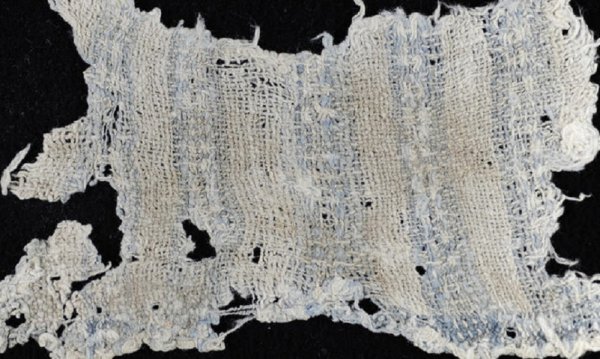This is Scientific American — 60-Second Science. I'm Cynthia Graber.
Many people remember the colors of the rainbow by the acronym ROY G. BIV. For red, orange, yellow, green, blue, indigo and violet. Well, the color indigo just made news.
Indigo gets its name from the plant Indigofera tinctoria and its relatives, which supply the dye that makes fabric the rich, beautiful color between blue and violet.
Indigo dye was used around the ancient world in fabrics created from Egypt to China to Meso and South America. And it's in South America that researchers recently found the oldest known example of fabrics dyed with indigo.
The artifacts were discovered at Huaca Prieta, a ceremonial mound on the coast in northern Peru. But their color was initially hidden by the grey tones that had leached into them from the materials used in the mound itself. But when a conservator carefully washed the fabric, the true colors reappeared.
"And it was at that point that I realized we probably had indigo and it was probably the world's oldest indigo."
Jeffrey Splitstoser, an anthropologist at George Washington University.
"Which was really exciting. I hadn't thought I'd be discovering, or we would be discovering, the world's oldest indigo, when I took on this project."
The research is in the journal Science Advances.

The dyed fabric is about 6,000 years old.
"In the Middle East there are inscriptions that discuss blue fabrics that date to about 3100 B.C. These are just texts though. And so we think they're referring probably to the earliest Old World indigo-blue dyed textiles. So that would date to about 5,000 years ago, 3100 B.C. And so these are at least 1,000 years older than that. And the earliest known indigo blue textiles were from Egypt and they date to around 4400 B.P., before present. So these are almost 2,000 years older than those."
Splitstoser says that the discovery means it's likely that the techniques to dye fabric blue were developed in the Americas before they were developed in Egypt.
"It really means that we have to look at the ancient Andes as one of the earliest sources of textile innovations in the world."
Thanks for listening for Scientific American — 60-Second Science Science. I'm Cynthia Graber.












